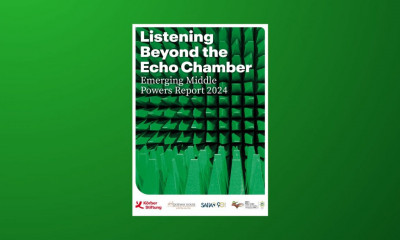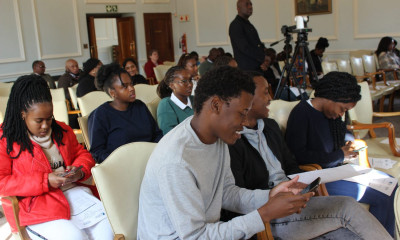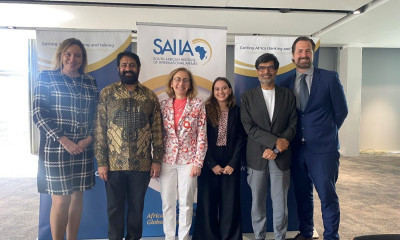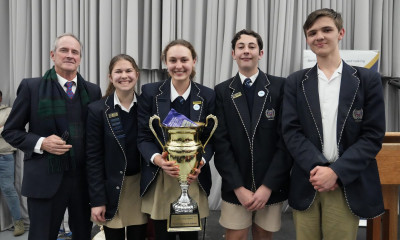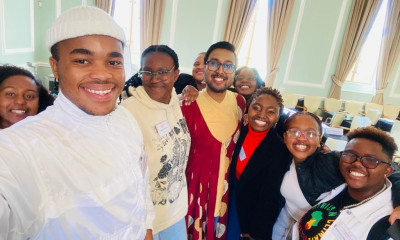COP 17, Durban – On the opening day of the 17th Conference of Parties (COP 17), 18 high school learners from around South Africa, are holding their own climate negotiations. The Youth Climate Negotiation follows a year of intensive research and will simulate the formal COP discussions currently underway at the International Convention Centre in Durban.
The negotiation forms part of Youth@SAIIA’s Environmental Sustainability Project.
Each learner is required to immerse her/himself into the role of a stakeholder and raise the issues affecting a particular sector. This includes taking on the role of a commercial farmer, a representative of the fossil fuel industry, a member of the African Union, or a representative of the forestry industry. The idea is to put forward the positions of these sectors (as they would be in the “real world”) and find genuine solutions to the effects of climate change. The negotiation process provides learners with a context to various climate change concerns and also gives them an appreciation for the complexity of the issues their seniors are experiencing in the main negotiation chamber. They also have to produce workable and realistic solutions through teamwork because no sector can address the challenges of climate change in isolation of the other.
The Youth Climate Negotiation will culminate in the creation of the South African Durban Youth Protocol which will be handed to the Minister of Women, Children and People with Disabilities, Minister Lulu Xingwana on Tuesday, 29 November 2011 at an official event in the UNFCCC precinct.
For further details, please contact Chevon Erasmus Porter + 27 82 820 8036.
Events details:
South African Youth Protocol Handover
Date: 29 November 2011
Venue: Levubu River Room, Durban Exhibition Centre (DEC), UNFCCC Side Events Rooms*
Time: 15h00 – 16h30
*Please note that formal UNFCCC accreditation is required to attend this event.
The Environmental Sustainability Project is supported by the United States State Department and Sasol.
Issued by the South African Institute of International Affairs

